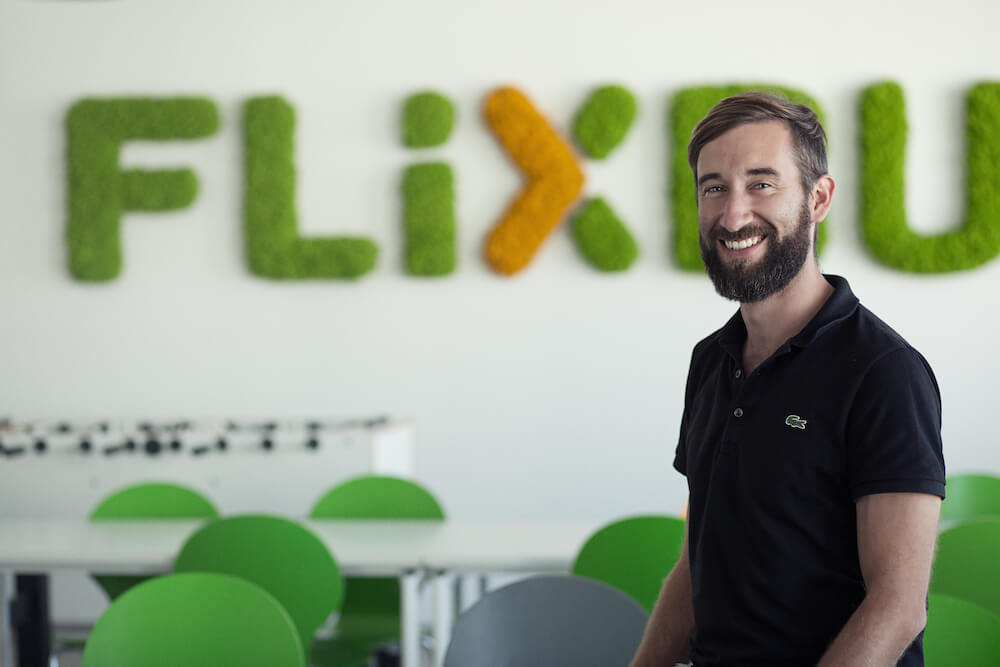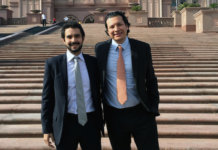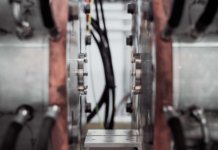An Interview with Daniel Krauss, Co-Founder of Flixbus, Germany
Just a few years in existence, Germany’s Flixbus is already the poster child for a successful and global 21st century company. Enabled through technology, its three young founders took on the traditional long-distance transportation industry, which until 2013, was not open to private operators. When the government opened the market, Daniel Krauss, Jochen Engert, and André Schwämmlein launched Flixbus.
Since they launched Flixbus as a low-cost booking solution for bus travel, it has served more than 60 million customers in 25 countries and handles a capacity of 200,000 connections a day. This has earned them the title of fastest growing start-up in Europe.
Given these numbers, it might come as a surprise that the company only owns one bus. Rather than investing in the cost-prohibitive exercise of building an entire bus fleet, Flixbus has partnered with several regional SME bus companies through Europe. In doing so, they’ve created a continent-wide network of affordable long distance bus travel that can all be easily accessed online.
In this interview, Flixbus Co-founder Daniel Krauss discusses the incredible growth of his company and what the future holds in store.
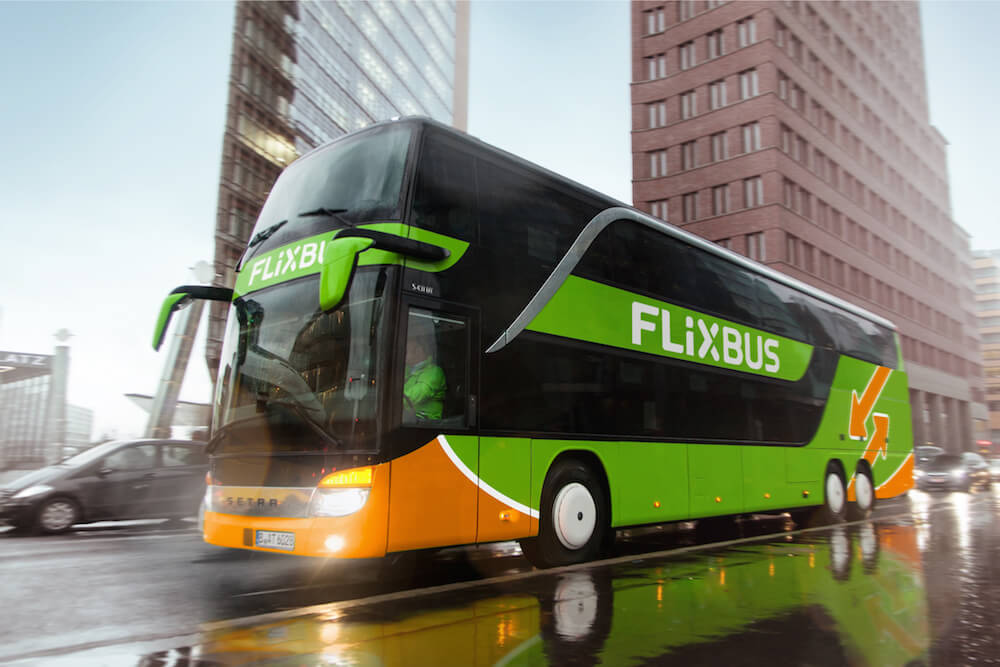
Can you tell us more about the philosophy behind the idea of Flixbus?
Flixbus is based on a couple of pillars, and the most important one is that it is a partner business. We do not own the buses. Other than the one bus we have to have to be a bus company, all of the other vehicles are owned by the over 250 mid-sized bus companies that we’ve partnered with all over Europe. Most of them are family-owned businesses who know the minutia of that industry much better than we do. What we are really good at is bringing customers on board and marketing. Our strength lies especially in how we implement technology and take a modern approach to how we create a network. We try to understand where customers want to go. We have the tools to measure so many data points and gather so much information and have built algorithms to figure out what the complete network includes. And it’s the same in how we come up with pricing. Our technology allows us to put the customer needs and behaviours at the centre which is a new approach for traditional transportation companies.
How many people are working with you currently?
Flixbus itself has over 1000 people in our seven offices across Europe. There are another 5000 to 6000 drivers and staff with the bus partners who connect with us. We grew rather quickly, and the main challenge of that rapid growth was building the organisation while still maintaining that start-up culture. Everybody is trying to take risks and encourage that entrepreneurial spirit, but that is more and more challenging the larger the company gets.

You and your two co-founders are close friends. How have you three managed the transition from this idea that you incubated together to running such a large operation now? What were some of the challenges that you faced regarding culture versus scale?
What is important is that the founders indeed share the same goal and the same vision. That has to be strong because obviously, on a day-to-day basis, there are discussions here and there. But if you know what the core of your vision is and why you started it up, you can overcome all of that. It was also important to function right from day one with 100 percent trust, so we didn’t need to control each other. André takes care of all the operational work, account management service, and everything involved in taking care of the partners. Jochen takes care of corporate development, investor relations, and human resources. I am all about technology. Since I’m the only one who studied computer science, I had to take over the responsibility of the overall platform. So I’m working together with our 150 engineers to create a cutting-edge technology platform. Last year we added a fourth team member to our management team. So now we have a CFO.
Is it easier or harder to maintain communication between the founders as the company grows?
We still share one office so you would think it would be easier but with our travel requirements, we find we have to schedule regular meetings. In the beginning, there was not much need because we were around each other all the time. But now when I’m more often in Berlin and Jochen is somewhere in Europe, and André is mainly in Munich, we had to professionalise our communication channels. Because if you only rely on the fact that you’ve known each other forever, you could potentially miss the iceberg and that’s dangerous. So we make the time to talk and ensure that the vision stays the same and our target stays the same.
So Flixbus is primarily a tech company?
Definitely! I always say we have two hearts in our chest. Of course, we’re partly a mobility provider, but I firmly believe that at our core, we are a tech company and that is what makes us so successful.
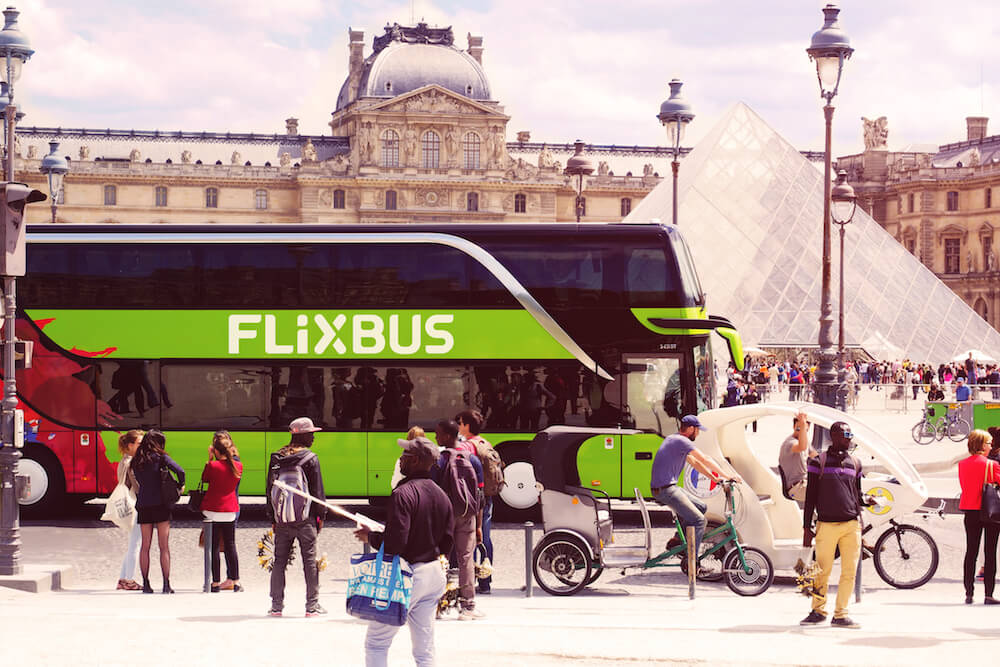
As a tech company, what is your biggest worry at the moment? Is it cyber security? Is it the user interfaces?
It’s knowing what the customer needs on an ongoing basis. You have to stay close to the customer or go out there and ask them what they require before developing new features. If you don’t do that or think because you are successful right now, that success will continue, you’ll quickly find yourself in trouble. Therefore, being close to the customer is one of the most critical challenges tech companies face. The other challenge is finding and retaining talent. To build even greater things in the future, you need very skilled people and unfortunately, they are scarce. And cyber security, well it’s a point you have to keep in mind from the first line of code. You better build the awareness through your people that as long as you’re out there on the internet, people will try to hack you. So it has to be at the core of every technology company that provides public interfaces. We have to deal with that on a daily basis.
[ms-protect-content id=”4069,4129″]
Do you worry about competition?
I worry more about us and getting complacent over time. We’ve proved that we can always take on the competition. The good thing is that most of the competitors in our field are companies that have been around forever. These are large corporates, some of them government-owned, and we proved that we can decide and execute business decisions faster. But competition just keeps it fresh and forces you to double check what you’ve decided and think about yourself. So we’re not afraid; we’re happy to take it on.

European entrepreneurs have been accused, especially by the venture-capital scene, of being maybe too cautious. Can you tell us how you perceive this now that you’ve become so successful globally? Do you see advantages of being based in Germany as opposed to a place like Silicon Valley?
It’s true that in Europe, and in particular Germany, it is not easy to fund your company. I feel it’s getting better and better because many of the US-focused funds are looking over to what’s happening in Europe, so if you’re an exceptional team, there are chances. What is good on both sides, the Valley and Germany, is you have legal safety and security and infrastructure which is super important. On the other hand, outside Berlin or Munich, infrastructure like high-speed Internet or 4G or 5G coverage can still be improved in Europe. So overall we’re happy we were founded in Germany and just took a chance on the long-distance bus market.
From your perspective, what is the main reason entrepreneurs fail?
When you have a very good idea, it’s not only about that idea and whether you like it or not. It’s also a question of if there is a market for it and will the customers like it. It’s also about speed. So many entrepreneurs talk forever and try to come out with the best product from the start, and it won’t matter. With the first attempt, you potentially have to embarrass yourself with what you have produced and not over-engineer it. Last but not least, you have to be resilient and move on. There are so many obstacles, and you will fall here and there. Just stand up and run faster than you’ve run before. You really have to want your success at creating that company more than anything else.
The disruption Flixbus caused in the industry created business and opportunity for family-owned bus companies. When a business is seeing disruption, how can they tell if it is a chance or a genuine threat to their existence?
Steve Jobs once mentioned that it’s better to cannibalise yourself before somebody else starts doing it. Companies need to overcome the fear of doing something new because they think or they fear it will cannibalise other parts of the business. If you have that in your hands, it’s much better than if anybody else does it. Believe me, if you come up with an idea that will cannibalise your business and you don’t execute it to yourself, others will find it, and they will do it in your place. Also, I think at any point, if you lose the perspective of the customer and you only conduct business as you’ve always done it, then you will not be successful. If the customer demands change, then you must change.
[/ms-protect-content]


